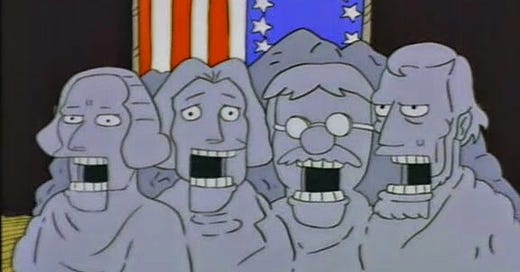Happy President's Day
On the day we honor perhaps the most overrated elected office in America, I offer my assessment on (some of) the 45 men who have held the job.
Keep reading with a 7-day free trial
Subscribe to Truth and Consequences to keep reading this post and get 7 days of free access to the full post archives.




